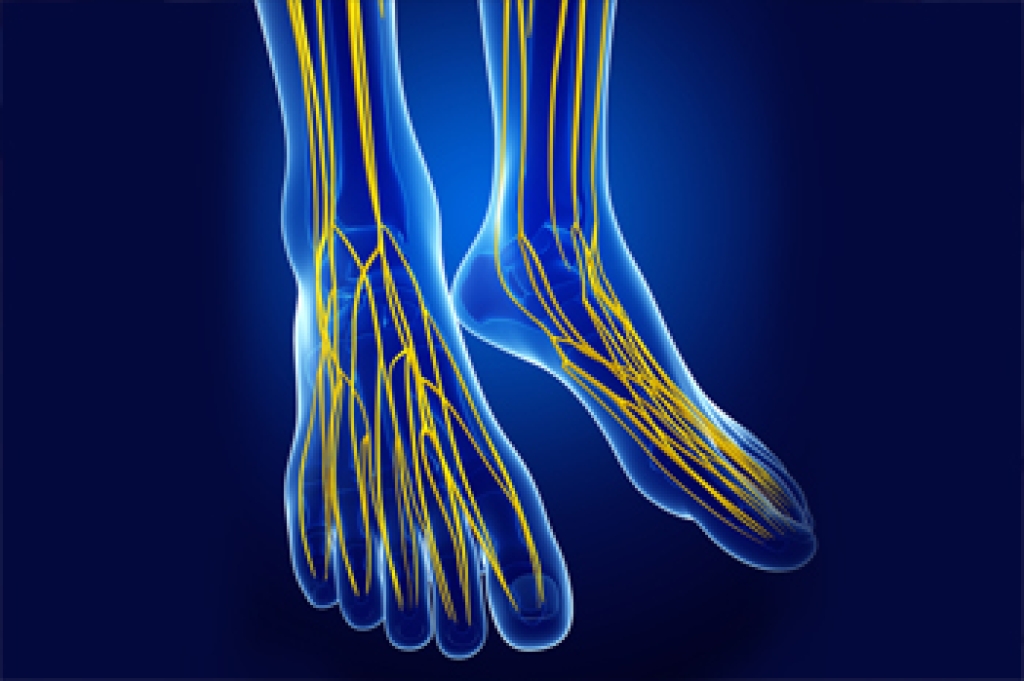
The peroneal nerve runs from the outside of the knee, down through the leg, and into the foot. It supplies movement and sensation to the lower leg, foot, and toes. When this nerve is damaged, usually by a direct trauma, it can result in numbness, tingling, or weakness in the foot. This condition is known as peroneal neuropathy. The result is a reduced ability to lift the foot to extend the toes or turn the foot outward, and may cause a kind of slapping gait while walking. This further leads to a tendency to trip, and an increased risk of a sprained ankle. It also can bring on foot drop, causing a need to lift the leg higher than normal, as in marching, to clear the floor or ground when taking a step. A loss of sensation in the sole of the foot is a common symptom. A number of imaging tests may be needed to determine the exact nature and severity of the peroneal neuropathy. Non-surgical treatment includes orthotics, braces or foot splints. In some cases surgery is required. If you are experiencing trouble lifting and moving your foot, it is a good idea to consult with a podiatrist for a full exam and diagnosis. A few neurologic conditions, such as multiple sclerosis and Parkinson’s disease, may cause similar symptoms.
Neuropathy
Neuropathy can be a potentially serious condition, especially if it is left undiagnosed. If you have any concerns that you may be experiencing nerve loss in your feet, consult with Mack Jay Groves IV, DPM from Practice. Our doctor will assess your condition and provide you with quality foot and ankle treatment for neuropathy.
What Is Neuropathy?
Neuropathy is a condition that leads to damage to the nerves in the body. Peripheral neuropathy, or neuropathy that affects your peripheral nervous system, usually occurs in the feet. Neuropathy can be triggered by a number of different causes. Such causes include diabetes, infections, cancers, disorders, and toxic substances.
Symptoms of Neuropathy Include:
- Numbness
- Sensation loss
- Prickling and tingling sensations
- Throbbing, freezing, burning pains
- Muscle weakness
Those with diabetes are at serious risk due to being unable to feel an ulcer on their feet. Diabetics usually also suffer from poor blood circulation. This can lead to the wound not healing, infections occurring, and the limb may have to be amputated.
Treatment
To treat neuropathy in the foot, podiatrists will first diagnose the cause of the neuropathy. Figuring out the underlying cause of the neuropathy will allow the podiatrist to prescribe the best treatment, whether it be caused by diabetes, toxic substance exposure, infection, etc. If the nerve has not died, then it’s possible that sensation may be able to return to the foot.
Pain medication may be issued for pain. Electrical nerve stimulation can be used to stimulate nerves. If the neuropathy is caused from pressure on the nerves, then surgery may be necessary.
If you have any questions, please feel free to contact our office located in Covington, LA . We offer the newest diagnostic and treatment technologies for all your foot care needs.
